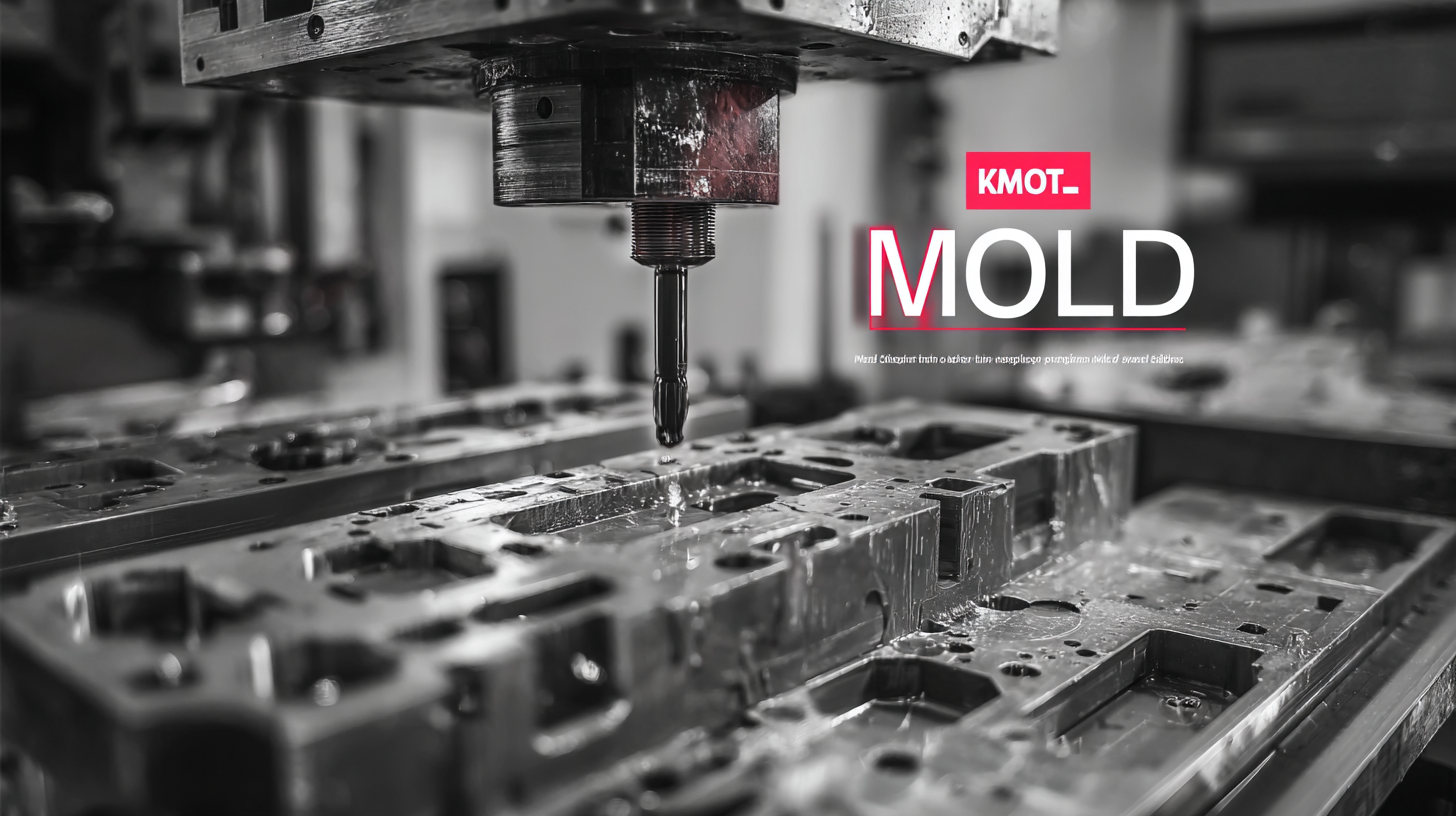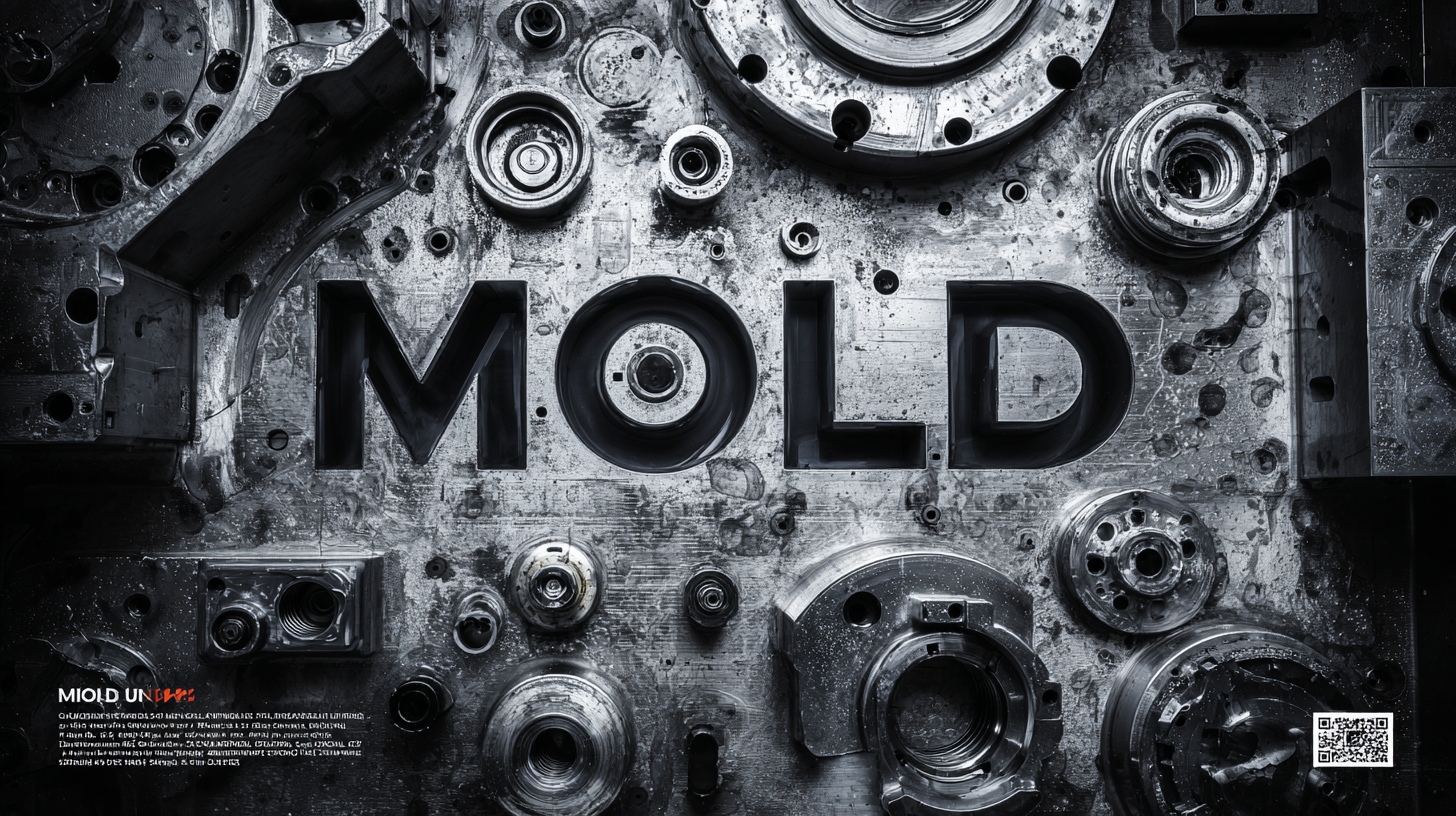In the competitive landscape of mold manufacturing, sourcing high-quality suppliers is crucial for businesses aiming to optimize their production processes and maintain product excellence. This blog delves into the intricacies of global procurement strategies tailored specifically for mold manufacturing. We will explore the characteristics and applications of various types of products, offering insights into how to effectively identify and evaluate potential suppliers.
 By understanding the nuances of different molds and their respective uses, companies can make informed decisions that not only enhance efficiency but also foster long-term partnerships. Join us as we unveil essential tips and strategies to navigate the complexities of supplier discovery in the mold manufacturing industry, ensuring that your business remains at the forefront of innovation and quality.
By understanding the nuances of different molds and their respective uses, companies can make informed decisions that not only enhance efficiency but also foster long-term partnerships. Join us as we unveil essential tips and strategies to navigate the complexities of supplier discovery in the mold manufacturing industry, ensuring that your business remains at the forefront of innovation and quality.
Identifying key attributes in quality mold suppliers is crucial for enhancing your manufacturing capabilities and ensuring a smooth production process. One primary attribute to consider is the supplier's technical expertise. A supplier with a deep understanding of mold design and manufacturing techniques can suggest innovative solutions and improvements. Furthermore, their experience in dealing with complex molds indicates a capability to handle your specific requirements, which ultimately affects the quality and durability of the final products.
Another important attribute is the supplier's quality assurance processes. Reliable suppliers adhere to stringent quality control measures, such as ISO certifications and regular audits, ensuring that each mold meets industry standards. Additionally, suppliers should demonstrate a commitment to continuous improvement through customer feedback and technological advancements. Assessing their production capabilities, response times, and service support will help determine if they can maintain consistent output without compromising quality.
By focusing on these key attributes, businesses can establish strong partnerships with mold suppliers, leading to enhanced efficiency and superior product outcomes.
Evaluating supplier performance is a crucial aspect of global procurement, especially in the mold manufacturing industry. A comprehensive assessment should involve key performance indicators (KPIs) such as quality, delivery time, cost efficiency, and responsiveness. By establishing clear criteria for evaluation, procurement teams can make informed decisions about which suppliers align with their strategic goals. Regular performance reviews not only foster collaboration but also highlight any areas needing improvement, ensuring that suppliers remain competitive in a dynamic marketplace.
Furthermore, leveraging advanced technologies and data analytics can enhance the evaluation process. Digital tools can track supplier metrics in real-time, enabling businesses to react swiftly to any potential issues that arise. This proactive approach not only minimizes risks but also strengthens relationships with high-performing suppliers. In a global context, understanding regional differences and cultural nuances can further refine procurement strategies, allowing teams to better navigate the complexities of international supply chains while ensuring quality and efficiency.
| Supplier Location | Quality Rating | Delivery Time (Days) | Cost Efficiency (%) | Sustainability Score |
|---|---|---|---|---|
| Germany | 9.0 | 15 | 85% | 8.5 |
| China | 8.5 | 20 | 90% | 7.2 |
| USA | 8.0 | 10 | 95% | 8.0 |
| Japan | 9.5 | 12 | 80% | 9.0 |
| South Korea | 9.2 | 18 | 87% | 8.8 |
Navigating the complex landscape of international sourcing requires a keen awareness of cultural challenges that can significantly impact procurement strategies. When seeking quality suppliers for mold manufacturing, understanding the cultural nuances of potential partners is critical. Differences in communication styles, negotiation tactics, and workplace expectations can lead to misunderstandings that impede collaboration. For instance, while some cultures might prioritize directness and transparency, others might favor a more indirect approach, placing importance on building relationships before discussing business.

To successfully engage with international suppliers, companies must invest time in cultural education and training. This not only fosters better communication but also demonstrates respect for the supplier’s heritage, ultimately enhancing partnership potential. Furthermore, employing local intermediaries can bridge cultural gaps and facilitate smoother negotiations. By embracing cultural diversity and adapting sourcing strategies accordingly, businesses can strengthen their global procurement efforts, ensuring efficient and fruitful collaborations that lead to high-quality mold manufacturing outcomes.
Effective communication with suppliers is paramount for successful mold manufacturing and global procurement. Establishing clear lines of communication not only helps in fostering trust but also ensures that both parties are aligned in their expectations and deliverables. Regular check-ins, whether through email updates or virtual meetings, can enhance transparency and allow stakeholders to address potential issues proactively. It’s essential to create a communication roadmap that outlines frequency, preferred channels, and key points of contact to streamline interactions.
Moreover, leveraging technology can significantly improve communication efficiency. Collaborative platforms facilitate real-time sharing of project updates, specifications, and feedback, reducing the risk of misunderstandings. For instance, using project management tools can help track timelines and milestones, allowing suppliers to stay informed about production targets and quality standards.
Additionally, cultural awareness plays a crucial role in international supplier communication; understanding regional business practices and etiquette can foster better relationships and reduce friction. By prioritizing effective communication strategies, businesses can ensure that their partnerships with suppliers are not only productive but also resilient.
In the dynamic landscape of mold manufacturing, ensuring compliance and effective risk management is paramount for global procurement strategies. As businesses expand their supply chains internationally, it becomes essential to navigate the complexities of regulatory requirements and quality standards across different markets. A robust compliance framework not only safeguards against legal pitfalls but also enhances the credibility of the procurement process, ensuring that suppliers adhere to industry-specific regulations and standards.
To effectively manage risks in mold manufacturing, companies should adopt a proactive approach that includes thorough supplier assessments and ongoing monitoring. This involves evaluating suppliers' certifications, production capabilities, and adherence to safety protocols. Additionally, fostering strong relationships with suppliers can facilitate transparent communication, making it easier to address potential risks before they escalate. By implementing comprehensive risk management strategies, businesses can protect themselves from unforeseen disruptions in the supply chain while ensuring that the quality of molds produced meets or exceeds expectations.

